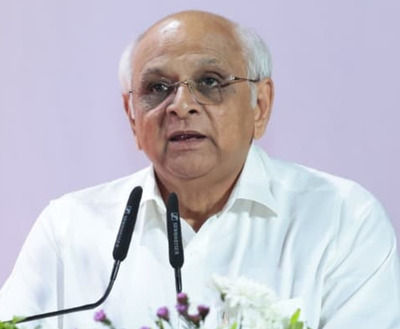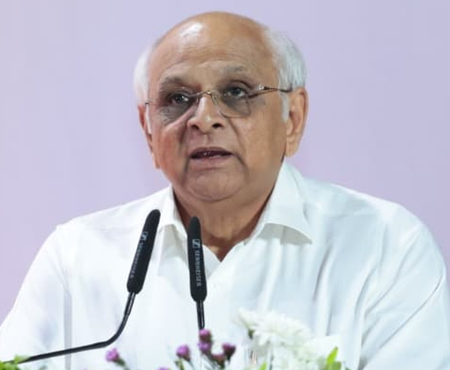

Gandhinagar, Sep 3 (IANS) Gujarat Chief Minister Bhupendra Patel has raised the financial powers of municipalities by 50 per cent for approving technical and administrative sanctions for projects funded through state schemes and decentralised district planning grants.
The decision, described as an example of administrative simplification, aims to prevent delays in launching civic works and ensure maximum utilisation of government grants.
Once a municipal committee grants approval, the Regional Commissioner of Municipalities (RCM) will be required to disburse 100 per cent of the sanctioned grant in two instalments within five days of receiving the proposal. Under the revised limits, Class 'A' municipalities can now approve works up to Rs 70 lakh, compared to the earlier ceiling of Rs 50 lakh.
Similarly, the cap for Class 'B' municipalities has been raised from Rs 40 lakh to Rs 50 lakh, Class 'C' from Rs 30 lakh to Rs 40 lakh, and Class 'D' from Rs 20 lakh to Rs 30 lakh.
He announced the measure as part of his plan to mark 2025 as the 'Year of Urban Development', continuing the legacy of Prime Minister Narendra Modi, who, in 2005, as Gujarat's Chief Minister, had laid the foundation for structured urban development by dedicating a year to the cause.
Officials said the higher approval powers will allow municipalities to take up public utility and welfare projects more swiftly, thereby supporting the vision of building smart and sustainable cities. Legislators and local body leaders had long pressed for such financial empowerment, and the Chief Minister's move is seen as a direct response to their appeals.
According to the government, the reform will not only speed up the pace of civic works but also enhance the quality and timeliness of urban infrastructure.
He emphasised that this step would reinforce the state's broader development philosophy of 'Earning Well – Living Well', ensuring that citizens in urban areas benefit from better amenities and improved living standards.
--IANS
janvi/svn